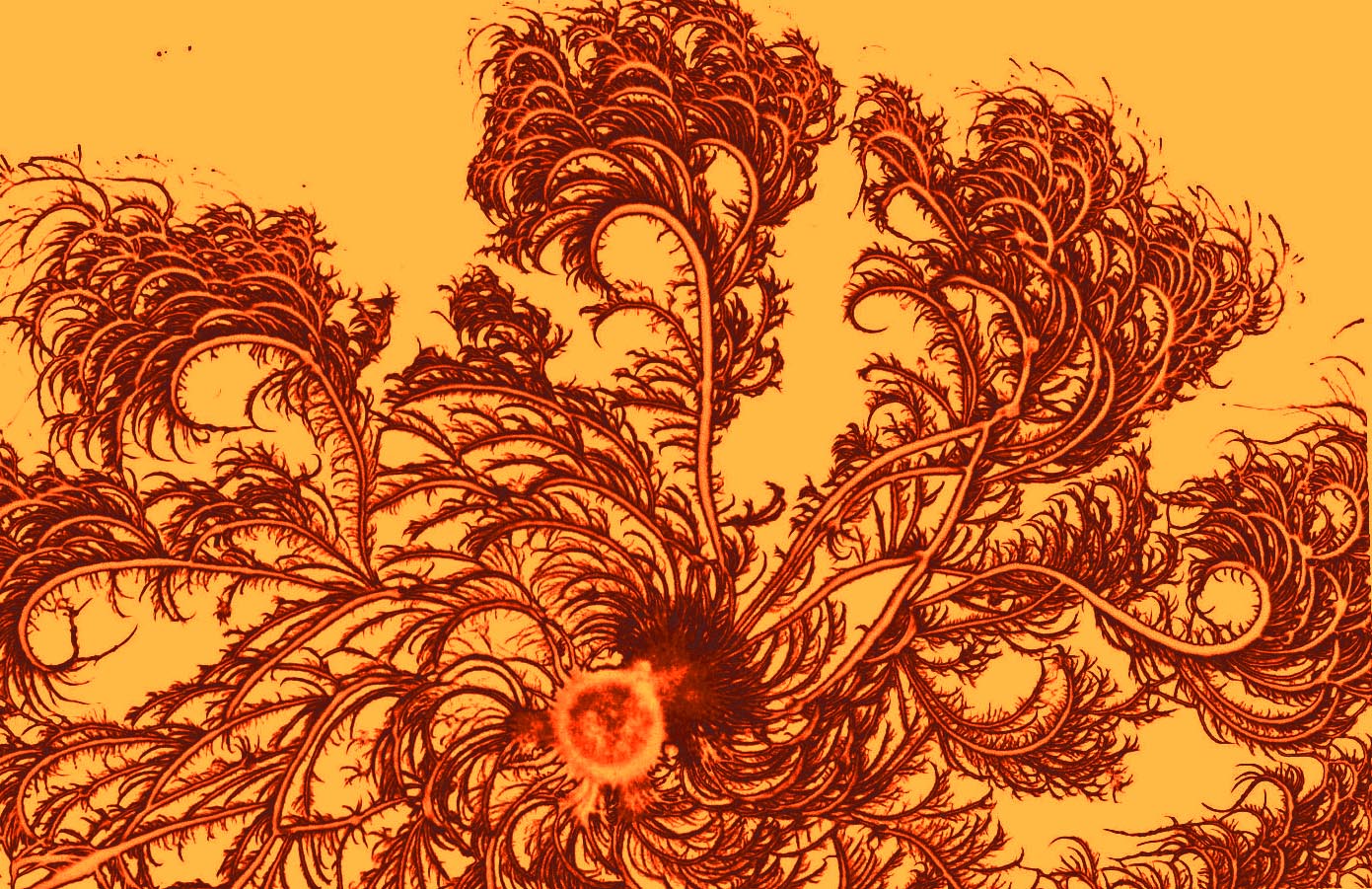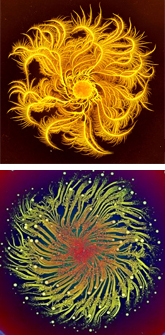Eshel Ben-Jacob: Learning from Bacteria about Social Networks

 |
Talk by Eshel Ben-Jacob Google Headquarters Mountain View, CA Link to video of his talk – right. In Memoriam. Eshel Ben-Jacob passed away on June 5, 2015. We miss his energy, creative reach across disciplines, and celebrate his great contribution. |
 |
 Learning from Bacteria about Social Networks
Learning from Bacteria about Social Networks
Bacteria, the first and most fundamental of all organisms, lead rich social lives in complex, hierarchical communities. Collectively, they gather information from the environment, learn from past experience, and make decisions. Bacteria do not store genetically all the information required to respond efficiently to all possible environmental conditions. Instead, to solve new encountered problems (challenges) posed by the environment, they first assess the problem via collective sensing, then recall stored information of past experience, and finally execute distributed information processing in networks ranging from a million to a billion bacteria in the colony, thus turning the colony into super-brain.
Super-brain, because the millions of bacteria in the colony use sophisticated communication strategies to link the intracellular computation networks of each bacterium (including signaling pathways of billions of molecules) into a network of networks. Ben-Jacob will show movies of live bacteria swarming “intelligently,” solving optimization problems for collective decision-making that are beyond what we, human beings, can solve with our most powerful computers. He will discuss the special nature of bacterial computational principles in comparison to our Turing Algorithm computational principles, showing that we can learn from the bacteria about our brain, in particular about the crucial role of the neglected other side of the brain, distributed information processing of the astrocytes.
Eshel Ben-Jacob is a theoretical and experimental physicist at Tel Aviv University, holder of the Maguy-Glass Chair in Physics of Complex Systems, and Fellow of the Center for Theoretical Biological Physics (CTBP) at the University of California San Diego. In the field of Systems Neuroscience he has focused first on investigations of living neural networks outside the brain and later on analysis of actual brain activity. In 2007,Scientific American selected Ben-Jacob’s invention, the first hybrid NeuroMemory Chip, as one of the 50 most important achievements in all fields of science and technology for that year. The NeuroMemory Chip entails imprinting multiple memories, based upon development of a novel, system-level analysis of neural network activity (developed from concepts in statistical physics and quantum mechanics), ideas about distributed information processing (developed from his research on collective behaviors of bacteria) and new experimental methods based on nanotechnology (carbon nanotubes). During the 1980s he became an international leader in the theory of self-organization and pattern formation in open systems, later extended this to adaptive complex systems and biocomplexity. His specialization in self organization of complex systems yielded the breakthrough of solving the long standing (since Kepler) snowflake problem. In the late 1980s, he turned to study of bacterial self-organization, believing that bacteria hold the key to understanding larger biological systems. He developed new pattern forming bacteria species, became a pioneer in the study of social behaviors of bacteria, and has been influential in establishing the now rapidly evolving Physics of Life (Biological Physics and Physical Biology) disciplines. He maintains that the essence of cognition is rooted in the ability of bacteria to gather, measure, and process information, and to adapt in response. Prof. Ben-Jacob received his PhD in physics (1982) at Tel Aviv University, Israel, served as Vice President of the Israel Physical Society (1999-2002), then as President of the Israel Physical Society (2002-2005), initiating the online magazine PhysicaPlus, the only Hebrew-English bilingual science magazine.

Images from Prof. Eshel Ben-Jacob’s laboratory of colony structures formed by bacteria grown in a petri dish. Adaptive responses to laboratory-imposed stresses mimic hostile environments faced in nature. Strategies involve cooperation via communication, sometimes to defeat our best antibiotics.
Wikilinks
Eshel Ben-Jacob
Paenibacillus
Paenibacillus vortex
Paenibacillus dendritiformis
Social IQ Score of Bacteria
Ben-Jacob’s Bacteria
The Index Cohesive Force
Functional Holography
Dependency Networks
The M|M Forum banner above was designed by Seana McNamara using photographs from Eshel Ben-Jacob, a constant reminder.
